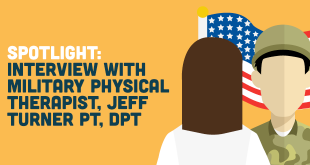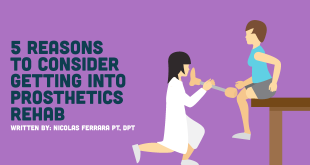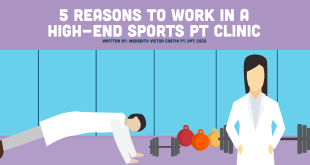Welcome to the ultimate guide on passing the NPTE (National Physical Therapy Examination) using study questions! If you're gearing up to conquer this pivotal exam and kickstart your career as a physical therapist, you're in the right place. In this article, we'll delve into the power of study questions and how they can propel you toward NPTE success.
Understanding the NPTE
First things first, let's familiarize ourselves with the NPTE. This comprehensive exam assesses your knowledge and skills in various areas of physical therapy, from anatomy and physiology to clinical decision-making. With multiple-choice questions and clinical scenario assessments, the NPTE challenges your ability to apply theoretical knowledge to real-world scenarios. Before diving into study strategies, it's essential to understand the exam's format and content. For more information, check out the FSBPT - National Physical Therapy Examination (NPTE) resource.
Benefits of Using Study Questions
Now, let's talk about the magic of study questions. Incorporating study questions into your NPTE preparation offers a multitude of benefits. Firstly, they serve as a powerful tool for reinforcing knowledge and identifying areas of weakness. By actively engaging with practice questions, you'll enhance your understanding of key concepts and boost retention. Additionally, practicing with study questions familiarizes you with the exam format and improves your test-taking skills. Dive into the Therapy Exam Prep platform for a wide range of NPTE study resources.
How to Use Study Questions Effectively
Now that you understand the importance of study questions, let's explore how to use them effectively. Begin by selecting high-quality study question resources tailored to the NPTE. Look for reputable textbooks, online platforms, and review courses that offer comprehensive question banks and practice exams. Next, create a structured study plan that incorporates regular question practice sessions. Set aside dedicated study time and track your progress to identify areas for improvement. For additional guidance, consider consulting the NPTE Practice Test Questions resource.
Types of Study Questions
Study questions come in various formats, each designed to assess different aspects of your PT knowledge and skills. Multiple-choice questions, clinical scenario assessments, and task-based simulations are among the most common question types encountered on the NPTE. Understanding the nuances of each question format is essential for effective preparation. Practice with a diverse range of question types to familiarize yourself with different testing scenarios and build confidence.
Success Tips from NPTE Experts
To wrap things up, let's hear from NPTE experts who have successfully navigated the exam. These seasoned professionals offer invaluable insights and advice on effective study habits, time management, and stress management during NPTE preparation. Take their tips to heart as you embark on your NPTE journey, and remember – success is within reach with dedication, perseverance, and the right study question strategies.
In conclusion, mastering the NPTE is no easy feat, but with the right approach and study question strategies, you can conquer the exam and embark on a fulfilling career as a physical therapist. So, dive into your study questions, stay focused, and unlock your path to NPTE success!
References
Morris PE, Goad A, Thompson C, et al. Early intensive care unit mobility therapy in the treatment of acute respiratory failure. Crit Care Med. 2008 Aug;36(8):2238-43.
Schweickert WD, Pohlman MC, Pohlman AS, et al. Early physical and occupational therapy in mechanically ventilated, critically ill patients: a randomized controlled trial. Lancet. 2009 May 30;373(9678):1874-82.
Perme, Christiane et al. “Safety and Efficacy of Mobility Interventions in Patients with Femoral Catheters in the ICU: A Prospective Observational Study.” Cardiopulmonary Physical Therapy Journal 24.2 (2013): 12–17.
Denehy L, de Morton NA, Skinner EH, Edbrooke L, Haines K, Warrillow S, et al. (2013) A physical function test for use in the intensive care unit: validity, responsiveness, and predictive utility of the physical function ICU test (scored). Phys Ther 93: 1636–1645
Kawaguchi YMF et al. Perme Intensive Care Unit Mobility Score and ICU Mobility Scale: translation into Portuguese and cross-cultural adaptation for use in Brazil. J Bras Pneumol. 2016;42(6):429-431
Perme C et al. A tool to assess mobility status in critically ill patients: the Perme Intensive Care Unit Mobility Score. Methodist Debakey Cardiovasc J. 2014 Jan-Mar;10(1):41-9.
Nawa RK et al. Initial interrater reliability for a novel measure of patient mobility in a cardiovascular intensive care unit. J Crit Care. 2014 Jun;29(3):475.
Hodgson CL, Stiller K, Needham DM, et al. Expert consensus and recommendations on safety criteria for active mobilization of mechanically ventilated critically ill adults. Critical Care. 2014;18(6):658.
Wang YT, Haines TP, Ritchie P, et al. Early mobilization on continuous renal replacement therapy is safe and may improve filter life. Critical Care. 2014;18(4)
 NewGradPhysicalTherapy.com The Largest Online Resource For New Grad Physical Therapists
NewGradPhysicalTherapy.com The Largest Online Resource For New Grad Physical Therapists







Awesome article Seb! Thanks for all the info.
Thank you Clinton. I hope it is helpful for all my colleagues out there.
Thanks for the article! Pending successful completion of the NPTE, I’ll be starting out as an ICU/acute care therapist in August. I’m so excited to be part of a mobility-friendly facility — I’ve seen the other side of the aisle as a student on rotation, and the overall QOC provided to those patients is vastly different. Way to encourage mobility advocacy!
Thanks for your comment Katie. The ICU can be an inspiring place to work. I also know the other side of the coin exists where patients are pretty much chained to their bed. No matter where you end up, I hope you’ll keep fighting the good fight. Take care